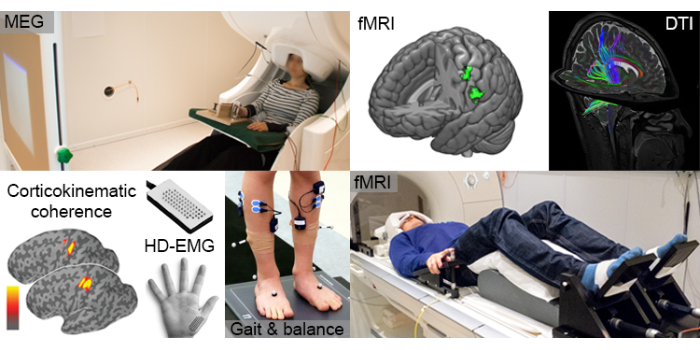Sensorimotor systems group (MOTOR)
We study structure and function of the healthy and diseased human sensorimotor system. We use magnetoencephalography (MEG), functional magnetic resonance imaging (fMRI), diffuse tensor imaging (DTI), electroencephalography (EEG), electromyography (EMG), and various biomechanical signals (force, acceleration, 3D-motion tracking etc.). Our current focus is on proprioceptive system (‘movement sense’), but we are interested on all sensory modalities. The sensorimotor system is the basis for human interaction with the environment, and thus some of our studies are focused on social interaction, cognition, embodiment, etc.
Our primary research questions
- How the brain utilizes sensory afference to execute smooth movements?
- Are the motor deficits due to sensory deficits in some motor disorders?
- How adaptable the human somatosensory system is for training and rehabilitation?
- Do somatosensory deficits in infants predict later motor disorders?
- How cognitive loading and abilities affect motor performance?
- How body awareness affects nonverbal-social interaction?



